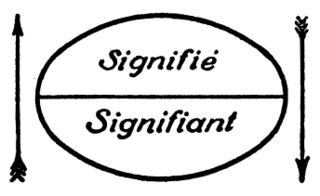Use in anthropology
Reterritorialization is when people within a place start to produce an aspect of popular culture themselves, doing so in the context of their local culture and making it their own. An example would be the Indonesian Hip Hop. Although hip hop and rap grew out of the inner cities of New York City and Los Angeles during the 1980s and 1990s, by the time it reached Indonesia through Europe and Central Asia, it had already lost some of its original characteristics. Imported hip hop diffused first to a small group of people in Indonesia; then, Indonesians began to create hip hop music. Although the music was hip hop, the local artists integrated their local culture with the practises of the “foreign” hip hop to create a hybrid that was no longer foreign.
Most current work in human geography uses anthropological definitions of culture and often views the practice associated with popular culture as cultural expressions that may reveal or create aspects of place, space landscape, and identity. The continuous cycles of deterritorialization and reterritorialization through axiomatization makes up one of the basic rhythms of capitalist society. Karl Marx referred to this as the constant revolution of the means of production and uninterrupted disturbances of all social conditions that distinguish the bourgeois era from all the previous. The fundamental mechanism of capital accompanies the process of deterritorialization and reterritorialization. It conjoins deterritorialized resources and appropriates the surplus from their reterritorialized conjunction.
Deterritorialization and reterritorialization presuppose and reinforce the notice of a common essence of desire and labor. This refers to the detachment and reattachment of the energies of production in general of investments of all kinds, whether conventionally considered psychological or economical.
Kataria (2019), in his work on 'Re-territorialization of persecuted identity', examines 're-territorialization' as an expression of refugees who try to re-establish a territorial connection after their arrival in their host societies, a process which tends to ignite ethno-national conflict with outgroups.

Pierre-Félix Guattari was a French psychoanalyst, political philosopher, semiotician, social activist, and screenwriter. He co-founded schizoanalysis with Gilles Deleuze, and ecosophy with Arne Næss, and is best known for his literary and philosophical collaborations with Deleuze, most notably Anti-Oedipus (1972) and A Thousand Plateaus (1980), the two volumes of their theoretical work Capitalism and Schizophrenia.

Gilles Louis René Deleuze was a French philosopher who, from the early 1950s until his death in 1995, wrote on philosophy, literature, film, and fine art. His most popular works were the two volumes of Capitalism and Schizophrenia: Anti-Oedipus (1972) and A Thousand Plateaus (1980), both co-written with psychoanalyst Félix Guattari. His metaphysical treatise Difference and Repetition (1968) is considered by many scholars to be his magnum opus.
La Borde is a psychiatric clinic that opened in 1953, near the town of Cour-Cheverny in the Loire Valley of France. Still in operation today, La Borde has been a model in the field of institutional psychotherapy where citizens actively participate in running the facility.
Schizoanalysis is a set of theories and techniques developed by philosopher Gilles Deleuze and psychoanalyst Félix Guattari, first expounded in their book Anti-Oedipus (1972) and continued in their follow-up work, A Thousand Plateaus (1980).

A Thousand Plateaus: Capitalism and Schizophrenia is a 1980 book by the French philosopher Gilles Deleuze and the French psychoanalyst Félix Guattari. It is the second and final volume of their collaborative work Capitalism and Schizophrenia. While the first volume, Anti-Oedipus (1972), was a critique of contemporary uses of psychoanalysis and Marxism, A Thousand Plateaus was developed as an experimental work of philosophy covering a far wider range of topics, serving as a "positive exercise" in what Deleuze and Guattari refer to as rhizomatic thought.

Anti-Oedipus: Capitalism and Schizophrenia is a 1972 book by French authors Gilles Deleuze and Félix Guattari, the former a philosopher and the latter a psychoanalyst. It is the first volume of their collaborative work Capitalism and Schizophrenia, the second being A Thousand Plateaus (1980).
In critical theory, deterritorialization is the process by which a social relation, called a territory, has its current organization and context altered, mutated or destroyed. The components then constitute a new territory, which is the process of reterritorialization.
Affect is a concept, used in the philosophy of Baruch Spinoza and elaborated by Henri Bergson, Gilles Deleuze and Félix Guattari, that places emphasis on bodily or embodied experience. The word affect takes on a different meaning in psychology and other fields.
Minority is a philosophical concept developed by Gilles Deleuze and Félix Guattari in their books Kafka: Towards a Minor Literature (1975), A Thousand Plateaus (1980), and elsewhere. In these texts, they criticize the concept of "majority". For Deleuze and Guattari, "becoming-minor(itarian)" is primarily an ethical action, one of the becomings one is affected by when avoiding "becoming-fascist". They argued further that the concept of a "people", when invoked by subordinate groups or those aligned with them, always refers to a minority, whatever its numerical power might be.
Desiring-production is a term coined by the French thinkers Gilles Deleuze and Félix Guattari in their book Anti-Oedipus (1972).
Plane of immanence is a founding concept in the metaphysics or ontology of French philosopher Gilles Deleuze.

Capitalism and Schizophrenia is a serial composed of two volumes, Anti-Oedipus and A Thousand Plateaus. It was written by the French authors Gilles Deleuze and Félix Guattari, respectively a philosopher and a psychoanalyst, during the May 1968, a period of civil unrest in France.
A rhizome is a concept in post-structuralism describing a nonlinear network. It appears in the work of French theorists Deleuze and Guattari, who used the term in their book A Thousand Plateaus to refer to networks that establish "connections between semiotic chains, organizations of power, and circumstances relative to the arts, sciences and social struggles" with no apparent order or coherency. A rhizome is purely a network of multiplicities that are not arborescent with properties similar to lattices. Deleuze referred to it as extending from his concept of an "image of thought" that he had previously discussed in Difference and Repetition.

Guy Hocquenghem was a French writer, philosopher, and queer theorist.
A line of flight or a line of escape is a concept developed by Gilles Deleuze and Félix Guattari in their work Capitalism and Schizophrenia. It describes one out of three lines forming what Deleuze and Guattari call assemblages, and serves as a factor in an assemblage that ultimately allows it to change and adapt to said changes, which can be associated with new sociological, political and psychological factors. Translator Brian Massumi notes that in French, "Fuite covers not only the act of fleeing or eluding but also flowing, leaking, and disappearing into the distance. It has no relation to flying."
Semiotext(e) is an independent publisher of critical theory, fiction, philosophy, art criticism, activist texts and non-fiction.

Sylvère Lotringer was a French-born literary critic and cultural theorist. Initially based in New York City, he later lived in Los Angeles and Baja California, Mexico. He is best known for synthesizing French theory with American literary, cultural and architectural avant-garde movements as founder of the journal Semiotext(e) and for his interpretations of theory in a 21st-century context. He is regarded as an influential interpreter of Jean Baudrillard's theories, among others.
Gilles Deleuze, a French philosopher, and Félix Guattari, a French psychoanalyst and political activist, wrote a number of works together.

In semiotics, signified and signifier are the two main components of a sign, where signified is what the sign represents or refers to, known as the "plane of content", and signifier which is the "plane of expression" or the observable aspects of the sign itself. The idea was first proposed in the work of Swiss linguist Ferdinand de Saussure, one of the two founders of semiotics.
Assemblage is a philosophical approach for studying the ontological diversity of agency, which means redistributing the capacity to act from an individual to a socio-material network of people, things, and narratives. Also known as assemblage theory or assemblage thinking, this philosophical approach frames social complexity through fluidity, exchangeability, and their connectivity. The central thesis is that people do not act predominantly according to personal agency; rather, human action requires material interdependencies and a network of discursive devices distributed across legal, geographical, cultural, or economic infrastructures.







